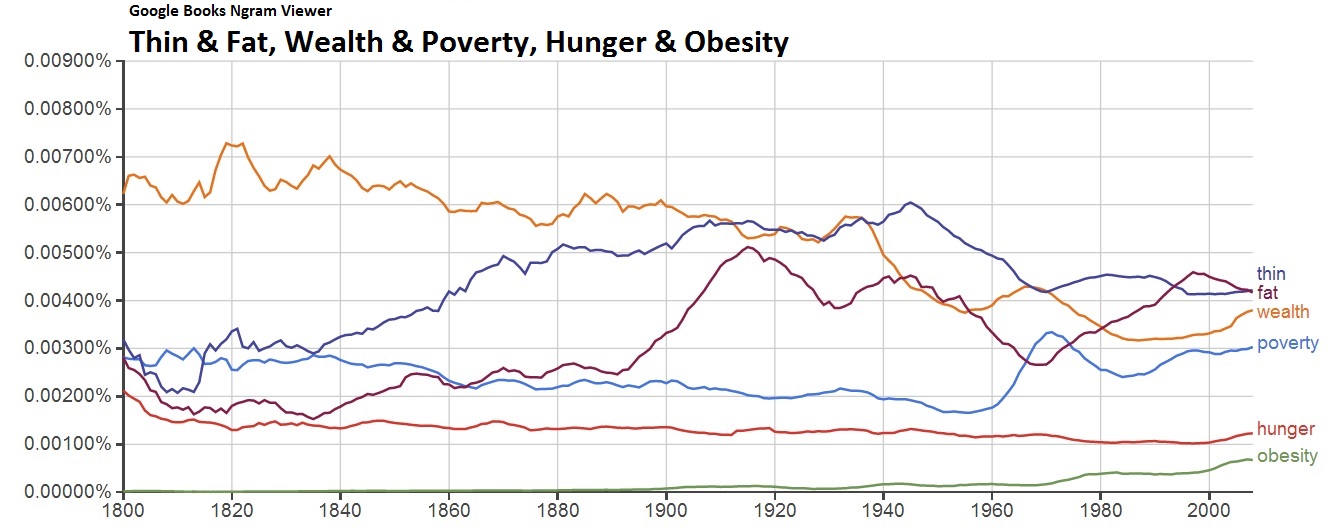Who’s Hungry?
Who’s hungry? In America, it’s more people than you might think. In Mississippi — the state most affected by hunger — one in four households (24.5%) report food hardship. In 30 states, at least one in six households report food hardships. And in the least hungry state in America — North Dakota — the number is one in ten households.
Globally, over the last six decades, hunger has grown slowly from 500 million people affected in 1950 to 700 million in 2010. At the same time, unfortunately, obesity has grown even more rapidly, moving from affluent countries into the developing world. In 1950, an estimated 100 million people were affected by obesity around the world. By 2010, that number stood at 500 million.
Taking a long view of ideas that commanded the attention of Americans in our books for the last 200 years, you can see a profound shift. At the beginning of the 19th century, wealth was by far the dominant idea when compared to poverty, thinness, fatness, and hunger. Obesity didn’t even register. By 2010, thinness and fatness surpassed these other ideas. Poverty gained more attention while wealth commanded less. Attention to hunger declined slightly as obesity came into view. These data come from Google Ngram viewer, which indexes the content of more than 5.2 million books and tracks the frequency of words and phrases within this body of works. Our results are specific to books in American English.
So it seems that the answer to our questions is that quite a few people remain hungry — both in America and around the world. Meanwhile, hunger’s cousin, obesity, is growing by leaps and bounds.
We need sustainable strategies to address both problems at once. Cheap, empty calories are not doing the trick.
Click here for a TED Talk on the twin problems of hunger and obesity and here for more on the global transition to diets that link hunger, poverty, and obesity.
Hungry Baby Barn Swallows, photograph © mclcbooks / flickr
Subscribe by email to follow the accumulating evidence and observations that shape our view of health, obesity, and policy.


